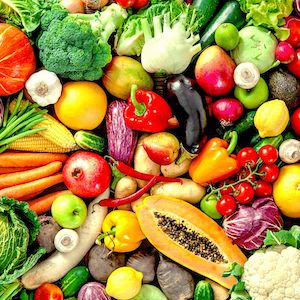The 2024 Canadian federal budget was released today, and there’s encouraging news for enhancing food security across the country. Strengthening Local Food Security emerged as an important initiative, acknowledging and addressing the persistent issue of food insecurity, particularly prevalent among Indigenous, racialized individuals, and persons with disabilities.
This year’s budget identified food insecurity as being a persistent challenge in Canada, disproportionately affecting Indigenous, racialized communities, and individuals with disabilities. It stressed how local food programs play a vital role in addressing this issue, allowing communities to cultivate, process, and distribute food locally. This not only enhances access to nutritious, locally-sourced food but also reduces reliance on major grocery chains.
The proposed investment of $62.9 million over three years, beginning in 2024-25, signifies a significant commitment to renew and expand the Local Food Infrastructure Fund. This funding aims to support community organizations across Canada in enhancing local food infrastructure, with a priority focus on Indigenous and Black communities, as well as other marginalized groups. Additionally, part of this expansion will bolster infrastructure for school food programs, complementing the National School Food Program.
As climate change exacerbates challenges for farmers, governments are stepping up to support agricultural resilience.
Protecting Farmers from the Costs of Climate Change
Farmers are grappling with significant challenges due to the escalating impacts of climate change, jeopardizing their livelihoods and food security. To alleviate the financial strain caused by natural disasters like droughts and floods, the government is funding the Livestock Tax Deferral, providing essential assistance to farmers. This support will aid in fostering resilience amidst the worsening effects of climate change. As well, the government will better support collaboration with industry stakeholders, such as the Canadian Cattle Association, to streamline and expedite support processes for farmers during times of crisis.
Federal Budget to support National School Food Program
Nearly one in four children do not get enough food, and that has a real impact on their opportunities to learn and grow. According to the Toronto District School Board, students who regularly ate breakfast were 17 percentage points more likely to be on track to graduate compared to students who did not have access to breakfast.
Canada Federal Budget 2024
The federal government is taking decisive action to launch a new National School Food Program to help ensure that children have the food they need to get a fair start in life, regardless of family circumstance.
The rising cost of groceries in Canada is posing challenges for families in providing adequate nutrition for their children. With nearly one in four children experiencing food insecurity, the impact on their educational and developmental outcomes is significant. To address this issue, the federal government is launching a National School Food Program, allocating $1 billion over five years to expand access to nutritious meals.
Targeting vulnerable communities, including First Nations, Inuit, and Métis, the program aims to provide meals for over 400,000 children annually. Alleviating financial strain on families, particularly those with lower incomes, the program is expected to save participating families up to $800 per year in grocery costs. Collaboration with provincial, territorial, and Indigenous governments will facilitate the implementation of the program, with support commencing in the 2024-25 school year.
Northern Food Security and Strengthening Access to Culturally Important Foods
Northern Food Security is a pressing issue for many Indigenous and Northern communities, where access to affordable, nutritious food year-round is often limited. Nutrition North Canada plays a vital role in addressing this challenge by making essential foods more accessible and affordable in communities without supply centers. Recognizing the increasing importance of this support amidst global food price inflation, Budget 2024 proposes significant investments to advance food security and affordability in the North.
These investments include $23.2 million in 2024-25 to support Nutrition North Canada’s subsidy program, aimed at lowering the cost of nutritious food and essential household items. Additionally, $101.1 million over three years starting in 2024-25 will be allocated to support the Harvesters Support Grant and Community Food Program Fund, facilitating the implementation of culturally appropriate, local solutions to address food insecurity.
Nutrition North Canada, funded by the federal government, serves 125 northern communities and aligns with the Inuit Nunangat Food Security Strategy, prioritizing local food production and community food programs. These investments have already had a positive impact, enabling communities to purchase equipment for harvesting, hunting, and food storage, enhancing food security and supporting the preservation of traditional foods and culture.
Recognizing the importance of access to culturally significant foods for Indigenous Peoples, Budget 2024 proposes additional measures to strengthen food security initiatives. This includes renewing and expanding the Northern Isolated Community Initiatives Fund to all regions of Inuit Nunangat, supporting local and Indigenous food production systems and innovative northern food businesses. Moreover, investments will be made to expand the Canadian Shellfish Sanitation Program, ensuring safe access to shellfish harvest for Indigenous communities for food, social, and ceremonial purposes.
Furthermore, funding will be allocated to implement measures under the United Nations Declaration on the Rights of Indigenous Peoples Act (UNDA). This includes enhancing policy and engagement capacity among Inuit Tapiriit Kanatami and Inuit Treaty Organizations. These measures will aim to co-develop legislative and policy options to facilitate the production, sale, and trade of traditional and country food, strengthening Indigenous food sovereignty and cultural preservation efforts.
Protecting Critical Supply Chains
Recent global events, including the COVID-19 pandemic and geopolitical tensions like Russia’s invasion of Ukraine, have highlighted vulnerabilities in critical supply chains worldwide. In response, Canada and other nations are prioritizing efforts to derisk or “friendshore” their supply chains, collaborating with trusted allies to enhance resilience and deepen economic ties.
This will include accelerating the transition to a net-zero economy. Strengthening supply chains through democratic partnerships, Canada aims to create significant economic opportunities for businesses and workers. Budget 2023 outlined initiatives to mobilize private investment and foster economic growth toward net-zero objectives, bolstering Canada’s role as a reliable supply chain partner while simultaneously reducing emissions and reinforcing essential trading relationships.
To learn more, visit the Government of Canada’s federal budget page at: https://budget.canada.ca/2024/report-rapport/toc-tdm-en.html














